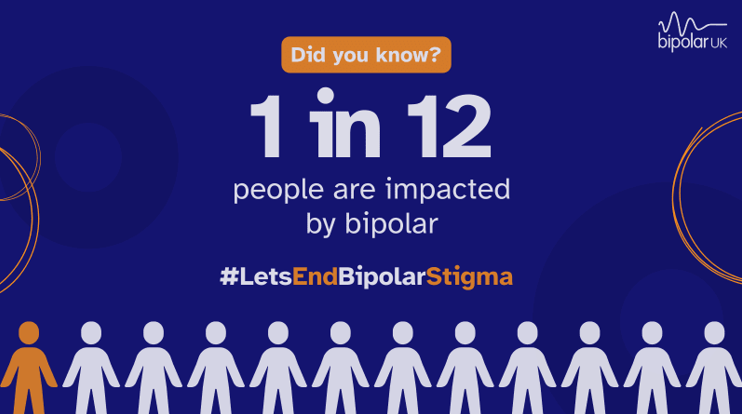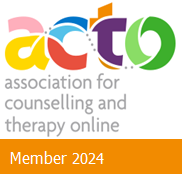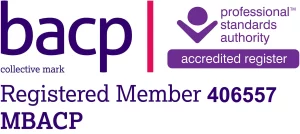Introduction
Did you know 1 in 12 people are impacted by bipolar? In the UK, over 1 million people have bipolar. That’s roughly 30% more than the number of people who have dementia and twice the number of people who have schizophrenia. Every year, March 30th marks World Bipolar Day, a global event aimed at raising awareness and combating the stigma surrounding bipolar. Launched in 2014, this day encourages individuals to join together, share their stories, and support one another in a community that understands the challenges and triumphs associated with living with bipolar.

What is Bipolar?
Bipolar, formerly known as manic-depressive illness, is a mental health condition characterised by differences in mood. Bipolar UK uses a mood scale from 0 being low (experiencing deep depression) and 10 being high (experiencing mania, psychosis, or hypomania). The precise cause of bipolar is still not entirely understood, but it is thought to involve a combination of genetic, environmental, and neurochemical factors.
Mania - is elevated or irritable mood, with changes in energy levels. While mania can result in an increased sense of well-being and euphoria, it can also lead to feelings of:
- Euphoric and exited.
- More superior and confident around others.
- More sexually aroused.
- Impairment in social and occupational functioning.
Hypomania - represents a state of elevated or irritable mood, increased energy, and activity levels.
- Increased self-esteem or grandiosity
- Decreased need for sleep (e.g., feeling rested after only 3 hours of sleep)
- More talkative than usual or pressure to keep talking
- Flight of ideas or feeling that thoughts are racing
- Easily distracted
- Increase in goal-directed activities (either socially, at work or school, or sexually)
- Being very creative and productive (this is why bipolar is sometimes linked with genius and talent)
Depression - is more than just feeling sad, hopeless or tearful, and affects everyone with bipolar differently.
- This feeling can often seem overwhelming and may be accompanied by tears and a sense of despair.
- Loss of Interest in activities and avoiding things you usually do
- Fatigue and Low Energy
- Changes in Appetite
- Sleep Disturbances
- Feelings of Guilt or Worthlessness
- Feeling aches and pains
Psychosis – Can be either end of the mood scale, both mania and depression can lead to psychosis. Where you can hallucinate or loose touch with reality, paranoia and delusions.
Types of Bipolar
There are several types of bipolar and is a severe mental illness characterised by extreme mood swings and changes in energy levels:
- Type I: Where someone experiences depression, hypomania and mania
- Type II: Where someone experiences long periods of depression and hypomania
- Cyclothymic: Involves periods of depressive and elevated moods lasting for at least two years.
The Importance of Awareness
World Bipolar Day serves as a reminder of the importance of understanding and supporting those affected by raising awareness, we can:
- Reduce Stigma: Many individuals with bipolar face stigma, leading to feelings of isolation and shame. Public awareness helps break down these barriers and fosters compassion.
- Encourage Early Diagnosis and Treatment: Increasing knowledge about bipolar encourages those who may be experiencing symptoms to seek help sooner, leading to better management and outcomes.
- Foster Support Networks: Awareness creates opportunities for people to connect with others who understand their experiences, whether through support groups, online communities, or events.
How to Get Involved
On World Bipolar Day, consider taking action to support awareness initiatives:
- Educate Yourself: Read about bipolar, its symptoms, and its effects on individuals and families. Knowledge is the first step toward compassion. learn more about the symptoms of bipolar by watching Bipolar UK webinars.
- Share Your Story: If you or someone you know has lived with bipolar, sharing personal experiences can help others feel less alone.
- Participate in Events: Many organisations host events, both virtual and in-person, to commemorate this day. Participate in walks, talks, or online discussions. Organise an activity in your workplace or community for ideas contact [email protected]
- Use social media: Spread the word on platforms like X, Instagram, or Facebook using the hashtag #WorldBipolarDay and #LetsEndBipolarStigma to reach a wider audience.
- Online E Learning: Let us understand what bipolar is - and isn’t https://www.bipolaruk.org/elearning
Bipolar UK offer a 20-minute eLearning course and is a good starting point to help people understand bipolar.

SPH Therapy (Shaping Public Health)
Getting Help
SPH Therapy is a counselling and psychotherapy service registered with the British Association for Counsellors and Psychotherapists and accredited registrant of the National Counselling and Psychotherapists Society. Each individual experiences bipolar differently and requires a personalised approach to treatment and lifestyle adjustments. SPH Therapy offers counselling for people with bipolar in Northern Ireland and online counselling for people with bipolar and people affected by bipolar throughout the United Kingdom. SPH Therapy offers an integrated approach to counselling and psychotherapy and other therapeutic methods which can aid individuals in coping with their emotions, identifying triggers, developing healthy coping strategies, and enhancing their problem-solving skills. With the right skills, those with bipolar can manage their symptoms proactively.
There are also free numerous resources available to support you.
 https://aware-ni.org/ https://aware-ni.org/028 9035 782 Free |

https://www.bipolaruk.org/ |
Conclusion
World Bipolar Day is not just a day of observation; it is a call to action. By coming together to raise awareness, we can create a more inclusive and understanding environment for those living with bipolar and their loved ones. Let’s continue to work towards a world where mental health is treated with the same significance as physical health, and where everyone feels supported in their journey. Together, we can make a difference. The stigma associated with mental health conditions can create barriers for individuals experiencing bipolar. Common misconceptions portray those with bipolar as unpredictable or dangerous, which can lead to fear and misunderstanding in society. De-stigmatising bipolar involves reframing the conversation around mental health.
 |
 |
 |
 |
 |
